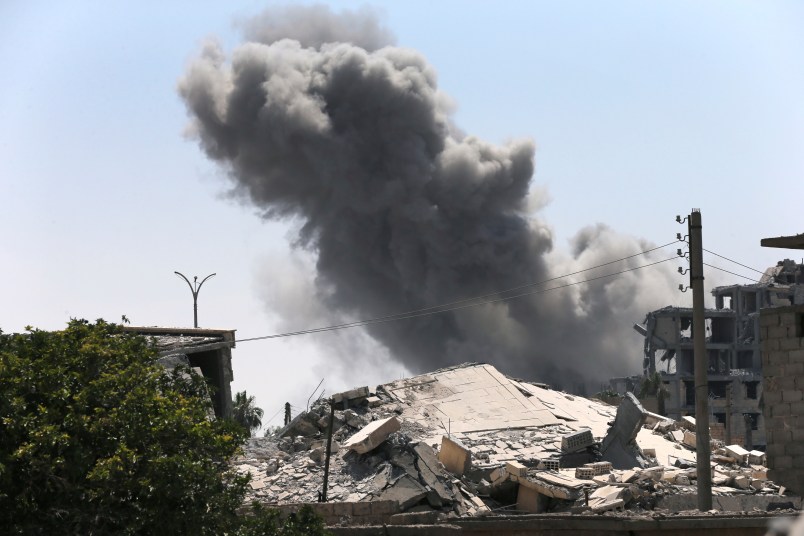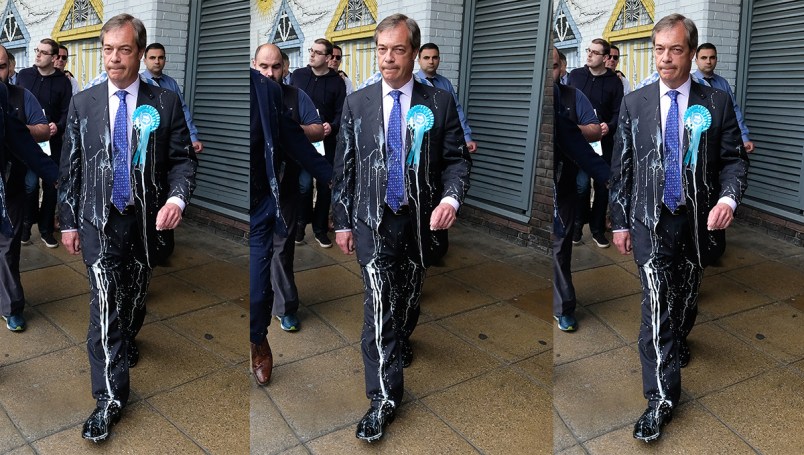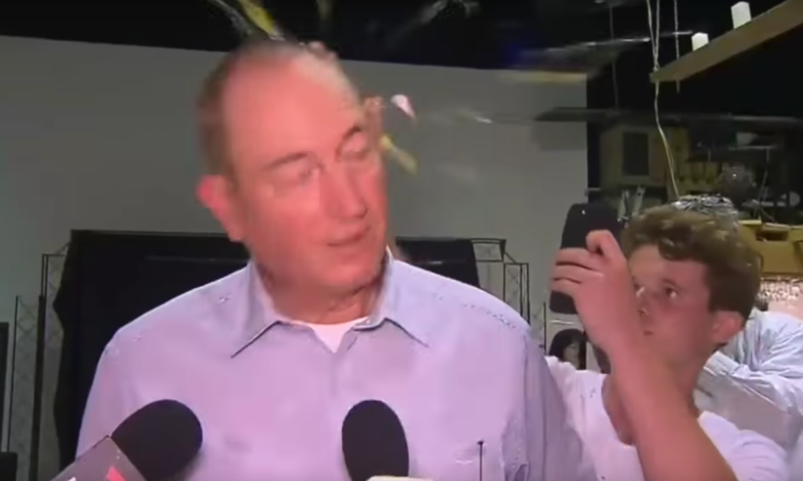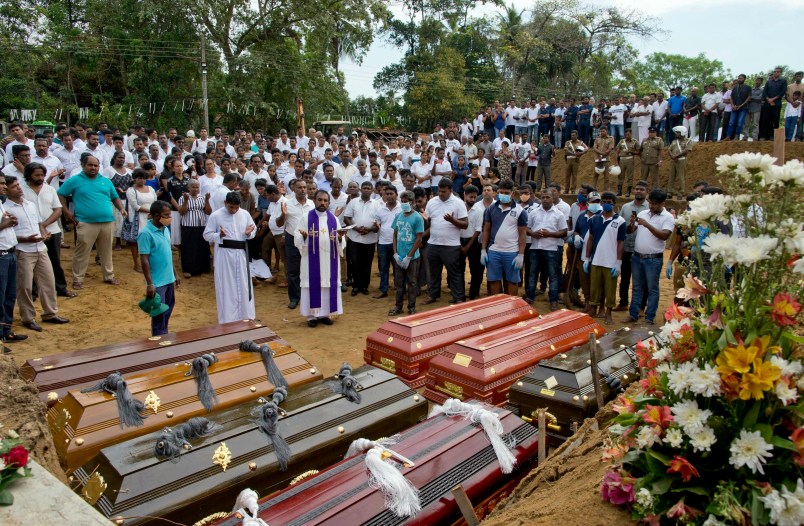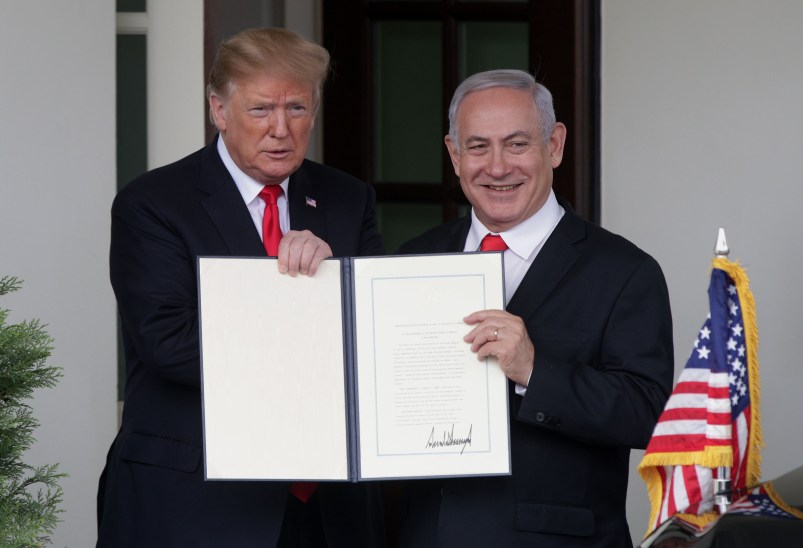RAQQA, Syria (AP) — U.S.-backed Syrian fighters have captured almost half of Raqqa from the Islamic State group, but the push into the northern city has slowed due to large amounts of explosives planted by the extremists and their counteroffensives, a spokeswoman for the fighters and a monitoring group said Thursday.
The assault on Raqqa by the Syrian Democratic Forces, a Kurdish-led fighting coalition, began June 6, backed by U.S.-led coalition airstrikes and U.S. troops advising the local forces. Since then, the SDF has made steady advances from the eastern and western sides of the city reaching the walled old quarter.
The capture of Raqqa, the Islamic State group’s self-proclaimed capital, would be a huge loss for the extremist group that earlier this month lost the Iraqi city of Mosul. But the liberation of Raqqa is still far off despite the progress.
Nisreen Abdullah, the Kurdish spokeswoman, told The Associated Press that the pace of the advance into Raqqa has slowed because of massive amounts of explosives laid by IS fighters. As the extremists become more surrounded, they have increased their suicide attacks against fighters of the SDF, she added.
“Raqqa has become a booby trapped city and this shows their (IS) weakness,” Abdullah, of the Women’s Protection Units, said speaking from northern Syria. “They are also using civilians as human shields and this is slowing the push as well.”
She said fighters of the Syrian Democratic Forces, which includes the YPJ, now controls 45 percent of Raqqa. She added that since the offensive in Raqqa began, SDF fighters have fully captured eight neighborhoods.
Plumes of smoke could be seen behind buildings in Raqqa a day earlier as the coalition pounded IS targets in the city. Syrian children looked on as U.S. armored vehicles drove by. One American soldier on a vehicle made the victory sign.
Mustafa Bali, who heads the SDF media center, confirmed Thursday that the group now has half of Raqqa and said the most important areas liberated in the past four days were the Nazlet Shehadeh and Panorama Square neighborhoods — both on the southwestern part of the city. But he said there are IS counterattacks, IS sleeper cells and tunnels in the area.
“It was not easy, we have casualties and martyrs,” he said, adding that the fighting was ongoing.
In the eastern front, where SDF forces breached IS defenses on the edge of the old city about a month ago, fighters have now reached the old citadel, an SDF commander in charge of one sector in the front told AP.
“As we move forward we find a tunnel every 100 meters,” Jihad Khabat said. He said the enemy, “besieged and in distress,” hides in deep and long tunnels spread all under the city, from where they would appear and harass Syrian fighters with frequent daily counterattacks.
The Britain-based Syrian Observatory for Human Rights also said SDF fighters control half of Raqqa.
The attacks on the city have claimed many civilian casualties among the tens of thousands who are still trapped in areas controlled by IS.
The Observatory said 29 people, including eight children, were killed in airstrikes on the city on Wednesday. The activist-operated Raqqa is Being Slaughtered Silently group said 36 people were killed and more than 50 wounded in airstrikes and shelling of Raqqa.
The reports could not be independently confirmed.
In central Syria, fighting edged closer to the IS stronghold of Sukhna, the last major town held by IS in the Homs province, according to the Observatory and the government-controlled Syrian Central Military Media.
SCMM said Syrian troops killed and wounded a number of IS fighters in battles near a mountain that overlooks the area. The Observatory said troops are now about 5 kilometers (3 miles) from Sukhna, which has been held by IS since the summer of 2015.


